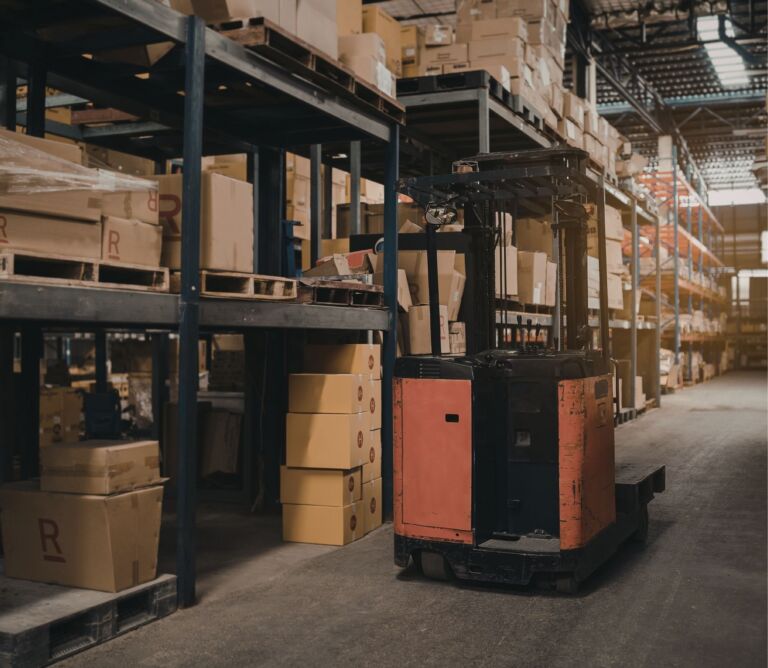Inventory Overflow Storage

The peak commerce season is approaching and warehouses are being stocked with extra products. This surge in inventory can lead to warehouse overflow, or when the warehouse reaches its capacity to store merchandise efficiently. Learn to manage overflow storage and be prepared for the holiday season.
What is inventory overflow?
Inventory overflow occurs when the volume of goods surpasses the storage capacity of a warehouse. This situation is common during peak seasons, such as holidays, when retailers stock up to meet anticipated demand. However, factors like inaccurate demand forecasting, supply chain disruptions, or unexpected bulk orders can exacerbate the issue, leading to overcrowded storage spaces and logistical complications.
Causes of Inventory Overflow
Several factors contribute to inventory overflow:
-
Seasonal Demand Surges: Retailers often increase inventory levels by 3 to 4 times during peak seasons to meet consumer demand.
-
Inaccurate Forecasting: Overestimating demand can result in excess stock that occupies valuable warehouse space.
-
Supply Chain Disruptions: Delays in the supply chain can lead to late arrivals of goods, causing a backlog in storage areas.
-
Bulk Purchasing: Buying in large quantities to avail discounts can lead to surplus inventory if not managed properly.
Importance of Adequate Warehouse Space
Efficient warehouse space is vital for smooth operations. Overcrowded warehouses can lead to:
-
Operational Inefficiencies: Difficulty in locating and retrieving products.redestorageutah
-
Safety Hazards: Increased risk of accidents due to cluttered aisles and stacked goods.
-
Inventory Mismanagement: Higher chances of misplaced or lost items.
Prologis Inc. reported that an additional 800 million square feet of warehouse space was needed to handle excess inventories in a recent year.
Why is short-term storage beneficial?
Overflow warehousing is a temporary solution for companies during the holiday season. Companies typically elect not to waste resources on permanent warehousing storage, since it’s nearly impossible to predict demands with any level of accuracy, even one week in advance.
When seasonal demands run high, transfer slow-moving goods to an overflow warehouse. Then dedicate the existing storage space to top-selling merchandise. This solution gives companies greater control, which is invaluable amid the unpredictability of increased product demand during the holiday season.
What are issues with inventory overflow?
Excess inventory can lead to several issues:
-
Cluttered Workspaces: Hinders movement and operations within the warehouse.
-
Delayed Order Fulfillment: Difficulty in locating products can slow down the shipping process.
-
Increased Operational Costs: Additional resources may be required to manage and organize surplus stock.
-
Product Damage: Overcrowding can lead to mishandling and damage to goods.
Strategies to Manage Inventory Overflow
To effectively handle inventory overflow, consider the following strategies:
-
Optimize Warehouse Layout: Reconfigure shelving and utilize vertical space to maximize storage capacity.
-
Designate Overflow Areas: Allocate specific zones for excess inventory to maintain organization.
-
Implement Inventory Management Systems: Use advanced software to track stock levels in real-time, aiding in accurate forecasting and replenishment.
-
Regular Inventory Audits: Conduct periodic checks to identify slow-moving items and make informed decisions on stock clearance.
-
Leverage AI and Automation: Adopt AI-driven tools for predictive analytics, helping in demand forecasting and inventory optimization.
-
Engage Third-Party Logistics Providers (3PLs): Outsource storage needs to 3PLs offering flexible and scalable solutions. materialogic.
OLIMP Warehousing Solutions for the Retail Holiday Season
Effectively manage excess goods during the holiday season by outsourcing warehouse operations to third-party logistics providers. A third party’s extra warehousing capacity is a practical and readily accessible solution to overflow problems that are unlikely to clear up in the short-term.
Opting for a third-party logistics solution during the holiday season saves retailers money and resources. Retailers are advised to look for warehousing overflow storage facilities near their main warehouse, if possible. Pick a warehouse well in advance of when it will be needed, i.e., before the holiday season.
Look for a warehousing solution that offers scalability. Ideally, new resources should reach more markets with ease. The right third-party logistics solution is capable of scaling up or down easily. As demands fluctuate, labor, space, and transportation are adjusted accordingly.
Retailers considering a warehouse storage option to provide extra space during the holiday season find a trustworthy partner in OLIMP Warehousing Solutions. We offer a vast network of several thousand warehouses across North America, making it certain you’ll find one close to your main warehouse.
Warehouses can be booked through our online platform well in advance or on short notice. We accommodate the seasonal needs of retailers, whether they anticipate a surplus of products before the holidays or simply need a quick solution for additional warehousing at any other time of year.
OLIMP is available to support your project, no matter if it is large or small. We take pride in our stellar track record of meeting the warehousing needs of retailers across the country, housing their excess inventory, and providing extra storage capacity to prepare them for success.
Retailers prepping for the surge of the holiday season may only need short-term storage, which is why OLIMP does not require long-term contracts. Storage terms and pricing are negotiable too. We strive to give our customers the best possible experience during the holidays.
When inventory exceeds your capacity, OLMP is the solution. We specialize in on-demand warehousing so that you keep your products moving. Request an online quote and we’ll connect you with any of our
You may be interested in

Warehousing and Storage: How to Choose the Right Facility for Your Business
Warehousing and storage are critical links in the supply chain, the bridge between production and your customers. Choosing the right facility affects delivery speed, cost efficiency and customer satisfaction. This guide explains how to evaluate warehousing & storage options in the United States and match them to your business needs. Why Warehousing and Storage Matter […]

Warehouse Location Strategy in the USA: 10 Key Factors to Optimize Costs & Delivery Speed
Choosing the ideal warehouse location is a strategic cornerstone for any logistics or freight business. A strategically sited warehouse drastically reduces shipping times and costs, boosts customer satisfaction, and strengthens competitiveness. In fact, strategic warehouse site selection can lower total logistics costs by 10–30% and improve delivery times by 15–40%. For example, placing inventory near […]

What Are Intermodal Containers? A Guide to Types, Uses & Benefits
Intermodal containers, also known as shipping containers or ISO containers are large, standardized metal boxes used to transport goods across multiple modes of transportation (ship, rail, and truck) without unloading the cargo inside. These containers are the backbone of global trade, allowing products to seamlessly travel from a factory floor to an overseas ship, onto […]
Ready to streamline your warehousing needs?
Request a quote today and discover how OLIMP's tailored solutions can optimize your operations